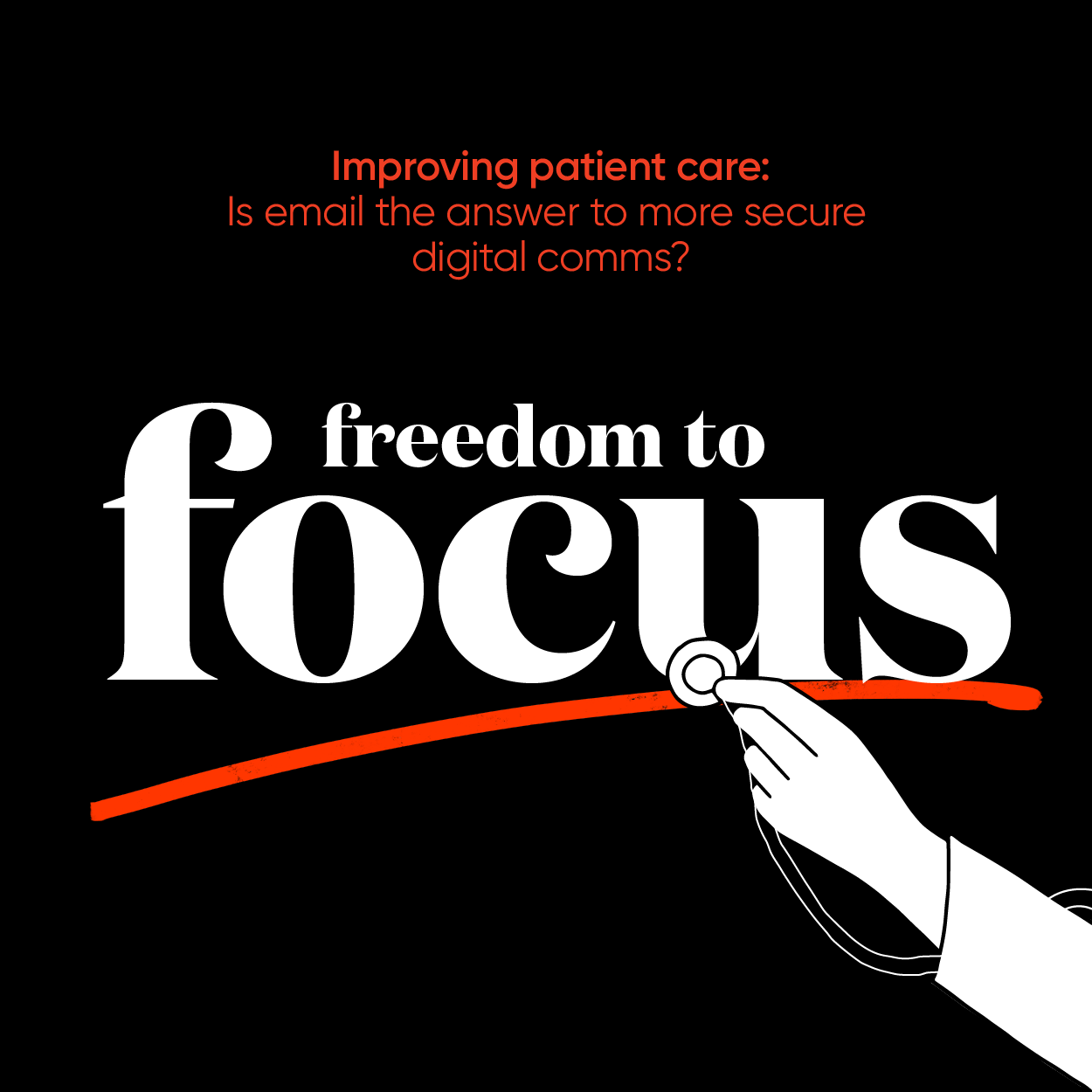Medical professionals are under constant, unyielding pressure to improve patient outcomes.
To modernise and overhaul legacy systems, healthcare providers are introducing more technological solutions than ever into the workplace. Consequently, we’re now also asking staff to find the time to learn how to use them and stay on top of their existing workloads.
99% of healthcare professionals want to be free to focus on patient care. However, the abundance of available technology isn’t streamlining this process: it is making work lives more difficult, increasing pressure, creating distractions – and introducing more opportunities for mistakes.
Cybersecurity defences are now crucial, and investment in this area must be a top priority for healthcare providers across the NHS and associated Integrated care systems (ICSs). However, too much technology can overwhelm and inadvertently cause insider security incidents.
We wanted to explore how healthcare data breach risk may increase by over investing in new technology. In March, we conducted one of the largest independent pieces of research into secure digital communications and workplace productivity in the UK healthcare sector to produce a new report - Freedom to Focus: Improving patient care: Is email is the answer to more secure digital comms?
The current state of digital communications in the healthcare sector
We asked healthcare professionals for their perspectives on workplace technology and digital communication. There’s no doubt that the proper selection of solutions can boost collaboration and efficiency. However, it seems that over investment can undermine a healthcare organisation’s security posture.
Almost half of the respondents surveyed in our research felt that too many data sharing and collaboration tools are the most significant cause of data security concerns. On a personal level, they can also increase stress in the workplace.
In the last two years, 51% of healthcare workers report an increase in workplace communication channels. But, unfortunately, 31% told us that new communication solutions have a downside: they impact their ability to focus on the job at hand.
So, how can we cut through the noise, support healthcare professionals, and return their freedom to focus?
By concentrating on improving the security of the digital communications king: email. In total, 88% of respondents said they rely on email during the workday, and 81% said they perceive email to be the most secure way to transfer sensitive information.
However, in high-pressure environments such as hospitals and clinics, mistakes happen. For example, over the past two years, 30% of healthcare workers we talked to said they had sent the wrong attachment in error; over a quarter have hit the ‘Reply All’ button by mistake, and 20% admitted to sending data via email that they probably shouldn’t have.
There is also a blind spot when being informed about security risks. Only 23% of respondents said they were concerned about data security – leaving 77% who, it appears, are not aware of the dangers and consequences of either malicious or accidental security incidents.
How to improve patients communications and healthcare
We need to find a better way to manage the security of this critical communication channel - and not by forcing our healthcare workers to shoulder the responsibility.
You can’t train people out of making mistakes. IT leaders agree with us, with 83% of those surveyed saying that email-based security errors and accidents caused by employees could be reduced with smart security solutions. Furthermore, 81% of healthcare professionals do not consider security to be the responsibility of their employees.
Communication is at the heart of quality, accessible patient care. Therefore, it is crucial to invest in secure digital communications. Still, we need to proactively manage and improve the core tech our healthcare staff needs to avoid generating technological noise that will only disrupt workflow and productivity.
Click here to learn more. You can also download our Freedom to Focus in the UK healthcare sector report, investigating the state of digital security for healthcare organizations today.
